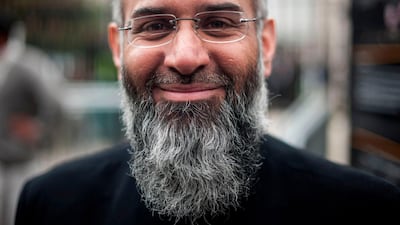European countries will release 1,500 convicted terrorists over the next 12 months, posing a major security challenge for authorities grappling with the fallout from wars in Syria and Iraq, a London counter-terrorist conference heard on Wednesday.
The wave of releases coincides with pressure to reabsorb thousands of exiled citizens who volunteered for the ranks of ISIS and have been rounded as the group lost its last swathe of territory.
Nearly a third of the prisoners will be set free in France where experts have warned that the prison system has failed to confront extremist ideologies. Some inmates are likely to emerge more dangerous than they went in, according to officials.
“France is struggling with the scale and scope” of the task, said Dr Magnus Ranstorp, research director at the Swedish Defence University, told the Security and Counter Terror Expo in London.
Some 1,900 people from France were reported to have joined ISIS ranks in Syria and Iraq, more than any other European nation, according to a study last year by the London-based International Centre for the Study of Radicalisation.
In addition to returning foreign fighters, senior prosecutors said the release of prisoners – some of whom were radicalised while behind bars for non-terrorist crimes – posed a risk of further attacks in France by its own nationals.
“There is a major risk of seeing people who are not at all repentant at the end of their sentence come out of prison, who could even be more radical given their stay in prison,” France’s leading counter-terrorist prosecutor Francois Molins said in an interview last year.
Extremists set for release include those who have served their sentences but are still considered dangerous and require continued monitoring, adding a further burden to already stretched police and counter-terrorist agencies across the EU.
Those already released in the last 12 months have included the extremist preacher Anjem Choudary, the former British leader of Al Muhajiroun, a now-banned group which has seen nearly 70 of its followers convicted of terrorist-related offences.
Documents seen by the National suggest that Mr Choudary faces a series of 20 restrictions on his movements to prevent his ability to rally the support of domestic extremists.
But other European nations will find it harder to monitor dangerous prisoners who are able to easily slip across borders under the EU’s rules on freedom of movement, said Dr Ranstorp.
“Police can’t solve this, security services can’t solve this,” he said. “Every day they have to decide who they are going to follow. They do it well – but there will be 1,500 across Europe who have been convicted of terrorist offences.”
The releases will be the largest scale of convicted terrorists since a wave of terrorism that hit the European mainland starting in 2004 with the Madrid train bombings by Al Qaida that killed 192 people.
Despite the long-term nature of the threat, Dr Ranstorp said that many governments were still experimenting with the best ways to de-radicalise known extremists.
He cited the case of Danish man Omar El Hussein, 22, who was flagged as dangerous extremist while serving a prison sentence for knife crime, but was released without being monitored.
Two weeks after his release, he targeted an arts centre hosting an event with Danish cartoonist Lars Vilks whose depiction of the Prophet Mohammed sparked anger in the Muslim world. Hussein killed one person at the event and then killed another at a synagogue in the city before he was shot dead by police.
“The prison authorities reported that he was radicalised but the authorities didn’t respond,” said Dr Ranstorp. “If we spend any money and resources we should look at the prison aftercare, reintegration and rehabilitation to make sure we lock them into structures and monitor them so they don’t pose a security threat.”
His comments came as a British judge jailed a Muslim convert, Lewis Ludlow, for a minimum term of 15 years for plotting an attack in London by mowing down shoppers in a van and providing support for ISIS.
It emerged that officials from the UK government’s deradicalisation programme, Prevent, had been in contact with Ludlow – a follower of Anjem Choudary - since 2008 but he had cancelled some appointments or tried to dupe officials that he was engaging with the mentoring programme.


